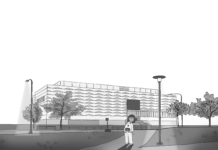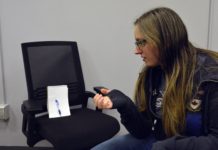As cases of COVID-19 continue to rise in Ontario and worldwide, the university has announced its plan to deliver the Winter 2021 term primarily online.
Most large classes will be delivered online, with some clinical programs, labs, and tutorials taking place in-person. Smaller undergraduate courses and seminars will continue as in-person activities. All in-person activities will follow physical distancing and other public health requirements.
Course registration dates have changed, and the winter course selection period begins Friday, October 23 and closes Thursday, November 5. Students will be able to view their winter schedule on November 26 and have access to Drop/Add appointment times in Quest; appointments will run from November 30 to December 1. Students can continue to make changes in their courses from December 2 to January 18, 2021.
The university has made changes to accomodate students while adhering to public health guidelines. Waterloo Residences will be open for the Winter 2021 term, and changes have been made to buildings following public health guidelines. For example, doors have been modified to have foot door pulls, “foot-operated elevator buttons,” while regular buttons are still available for accessibility. More than 250 hand sanitizing stations have been added.
Although classes are mainly online, the university and faculties will continue to support students.
Associate Dean Katherine Acheson for the Faculty of Arts has said that during the pandemic, “we have been advising remotely (by email and phone) on academic matters such as course selection and academic progression, student success, and wellness support.”
For the Winter term, “We expect there to be more synchronous activity in courses in the Winter, as both instructors and students have asked for it.” However, Associate Dean Acheson also mentioned that students with limited access to synchronous activity due to time zones issues, internet quality or access to a computer and study space would “receive the full learning opportunity afforded to students who can be present for the synchronous activities.” The Faculty of Arts “employs many co-op students in Spring and Fall as Online Learning Associates, which supports our delivery of courses and gives co-op students valuable experience.”
The Faculty of Applied Health Sciences has been supporting its students by “Offering virtual events to keep students connected: over the spring term, AHS Senior Online Learning Assistants (SOLAs) held events including virtual bingo, movie nights, a puzzle night, and a talent show.” The Faculty has also developed a new “Student Engagement Working Group” to “identify any gaps in virtual engagement initiatives for undergraduate students.” The Faculty has “received feedback from students and instructors indicating they would like to see more synchronous activities within their courses for the winter term.” The Faculty will continue to provide “meaningful and adequate access to the same learning experiences must be made available to students who cannot attend synchronous learning activity.” There will be a “town hall” event on Friday, October 9, where undergraduate students will be able to connect with Dean Lili Liu to “share how their fall term is going and the types of things the Faculty can be doing to further enhance community building, academic success, well-being, and an overall vibrant student experience.” Student Relations Officer Rebecca Cordick provided this information.
Dr. Mónica Barra, Associate Dean of Science for Undergraduate Students, had said that Advisors of the Science Undergraduate Office (SUO) provided advising before classes went online in March, and have “decided to continue this practice with daily virtual drop-in advising hours in Microsoft Teams.” Students can meet with a specific advisor or ask general questions using the chat function. The work of the SUO has gone virtual by using Skype for Business to take phone calls, Teams audio and video meetings to replicate student meetings, Instant messaging on Microsoft Teams for quick questions that might have been asked at the front desk previously.”
Dean Jean Audrey of the Faculty of Environment has said that “Environment’s administration and student groups have been organizing town halls, virtual coffee meetings with peers and alumni, and academic supports such as office hours and one-on-one meetings.”
While “Faculty advisors are meeting regularly with their graduate students.” The Faculty has hired “more than 30 co-op students as Online learning Assistants [to] help facilitate the move to online.” Instructors have also been “utilizing resources such as the workshops offered by the Center for Teaching Excellence.”
The university has created flexible pathways for co-op students. The Faculty of Environment has “allowed students who did not find a co-op position to study full-time in what would normally have been a work term.”
Dean Mary Wells, of the Faculty of Engineering, has said students “are finding creative ways” to collaborate. “Some graduate classes are in-person” and are running “following all the public health guidelines.” Dean Wells voiced that she “want[s] to virtually touch base with the students and has arranged “weekly coffee and conversation with the Dean.” ”
“Each month we’ll have a theme, and I said to the students ‘what are some things you want to hear about?’. It’s really just a forum just to touch base with them, and I am available to answer any of their questions.”
Smaller, socially distanced events have been taking place on campus; Dean Wells mentioned that the Faculty was celebrating its international students. “We did run a pop-up ice cream event, and we had people sign up and did it in a safe manner. We had ice creams from around the world. I think about 100 students came out over the hour into an outdoor space.”
Associate Dean Benoit Charbonneau of the Faculty of Mathematics has said, “advising is something that continues despite the pandemic remotely, and students can book a virtual appointment via the web with one of the first-year math studies advisors from the faculty.” Due to social distancing protocols, the Faculty was “not able to open the tutorial centre. This was run in the past by Jordon Hamilton. Instead, what we have done is assigned TA’s directly to courses and Jordon trained them to run effective office hours or help sessions.” Changes in course delivery have been made to accommodate online learning and will continue into the Winter Term. Associate Dean Charbonneau said, “Having multiple instructors for one gigantic section, instead of breaking it into five sections, has allowed us to be nimble and to be able to offer quality online courses on a reduced timeline.” The Faculty has also recommended, “instructors don’t teach live lectures to best accommodate students’ technological limitations and time zone issues.” Students will continue to be engaged with “‘fire side chats’ with the Dean to answer student questions.”






























